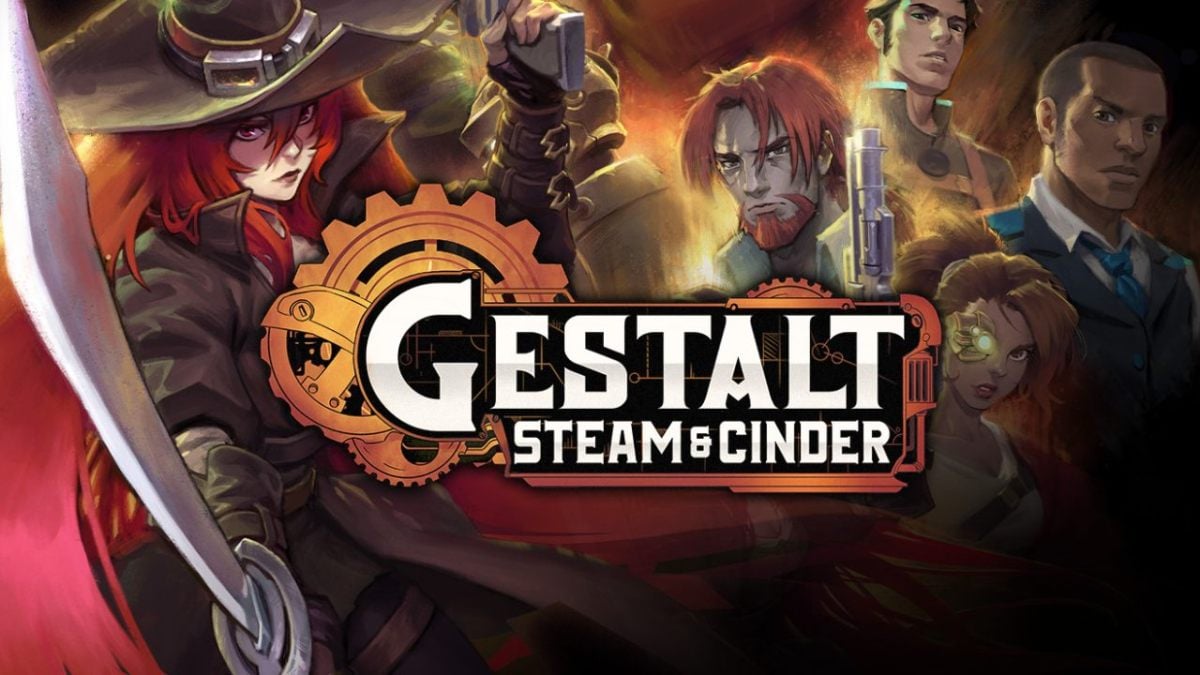There have been many indie studios to tackle the roguelike genre in recent years. An overwhelming number of them have hit the marketplace, actually. The genre has been iterated on, in some cases improved upon, and taken in unique directions as we saw with titles like Crypt of the Necrodancer, Enter the Gungeon, and most spectacularly Rogue Legacy. Tribute games is throwing their iron in the fire with Flinthook, an interesting take on the genre that does some great new things in terms of movement mechanics while also relying on many of the systems that have been put in place by other titles, essentially combining fast action platforming gameplay with roguelike progression elements.
The premise of Flinthook is certainly different. You play as a space-faring pirate fighting through a galaxy where everyone is fighting for riches. As another pirate sets his eyes on unleashing an ancient evil threat, your objective is to stop this enemy by fighting your way through waves of procedurally generated pirate space ships and the bosses that govern them. To accomplish this great task, you play as Flinthook. The pirate is small in stature but flush with abilities, some which are core to the game and you start off with, while others are earned through playing the game, again and again.

Inspired by the aforementioned titles, Flinthook is game that forces you to nibble away in small chunks. As it’s broken into palatable levels that once completed can be bypassed on your next playthrough. No, you don’t have to beat Flinthook in one sitting. It’s not true to the nature of Rogue in that way. It’s skews further away from Rogue than most titles of this nature, due to the fact that many of things you accomplish in the game are permanent whether you make it through a level or not. You’ll earn XP, Currency to unlock new weapons on the Black Market, and you’ll in turn continue to make your character stronger and stronger as you progress. Flinthook, like other games of this type are a battle of attrition. Keep playing the game and eventually you’ll earn enough points, XP, and power-ups to help you make it through your challenges.
What does set Flinthook apart from the crowd is the core abilities of the character and the gameplay itself. More dynamic than other games of this type, the core movement mechanic for the character is a hook called the Hookshot, which allows you to grapple around any room of a ship. It’s fluid and it feels great. If the idea for this game was Spiderman with a gun (which it was), mission accomplished. Navigating through each room of a ship will require that you use this core mechanic swinging from point to point navigating treacherous HP stealing traps while being on the lookout for treasures. Often enough, you’ll be locked into a room with a group of enemies that must be dispatched before progressing further. These enemies feature a wide range of attacks, and given the procedurally generated nature of the game you never quite know what Tribute is going to throw at you when the doors of a new room close behind you.

Coupled with the Hookshot are a time slowing mechanic, your trusty blaster, as well as passive buffs and usable power-ups. Putting it all together in Flinthook, the gameplay feels great and can get bullet-hellish as you progress through the game. Not too easy, not controller breaking hard, Flinthook strikes a good balance between being accessible, fun, and challenging. There’s a delicate balance in Flinthook where you must both explore as much of a given ship as possible for possible rewards (and secrets) and conserving your energy to make it through each level to a final boss encounter. You’ll find relics, power-ups, currency, and hp tucked away in all corners of a ship, so it’s worthwhile to explore even if that means your run won’t culminate with any meaningful progression in terms of taking down a boss.
Flinthook doesn’t necessarily break the mold in terms of the structure of the game when compared to others in this genre. But giving players the ability to create their own combinations of loadouts and buffs gives it a nice level of customization for player preference. You can select items like additional health, XP boosts, blaster powerups, and more. However, I would have personally like to have seen more diversity when it comes to weapons and power-ups, at least in the early stages of the game. It takes quite a while before you see any real meaningful power-ups to your blaster (your main method of dispatching enemies).

Flinthook isn’t my favorite game when it comes to the art-style, though it is pixel art graphics like the developer’s previous games. The pirate ships you’re invading have a lack of diversity. And no, that’s not an Anchorman reference. After hours and hours with the game, much of it seems to have a very generic style that is shifted around to give it the sense of a changing landscape. It’s the peril of procedural generation. It gives you new layouts, but the assets remain largely the same and doesn’t have the handcrafted feel that some better pixel art games have. My last complaint about the game, and probably the most frustrating have been the hard crashes I’ve experienced on PC. I’ve had about a 50% success ratio of playing Flinthook without having to either task manager out of the game, or restart my computer completely. That in itself doesn’t take away from the gameplay experience, and hopefully it’s something that isn’t widespread for people when the game launches. If it is, hopefully a patch can fix that.
The Verdict
Flinthook isn’t necessarily a game changer for the rougelike genre, but it’s still a lot of fun to play. Zipping around levels with your hookshot and using your various power-ups to navigate some of the tough scenarios that the game throws at you is rewarding. If Roguelikes are your thing, but you’re not looking for something that’s too taxing Flinthook is worth a look.











Published: Apr 18, 2017 11:00 am